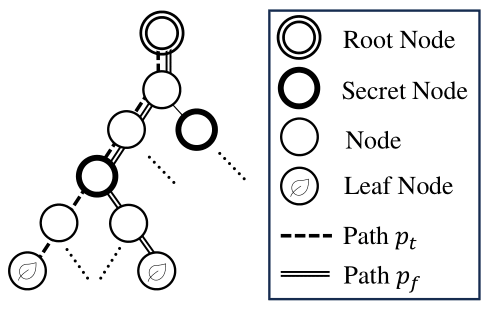
Shenghan Zheng is a Ph.D. student in the Department of Computer Science of Dartmouth College with focus in computer security. He is fortunately advised by Prof. Christophe Hauser. His research interests include network security, system security, software analysis and verification. Specifically, his research incorporates multiple program analysis methods(e.g., fuzzing, symbolic execution, and reverse engineering) in combination with machine learning techniques(e.g., GNN and Large Language Model).
He earned his master's degree at UC Riverside where he was a member of UCR Security Lab. Previously, he was a member of DSP Lab at UC Irvine.
Warning
Problem: The current name of your GitHub Pages repository ("Solution: Please consider renaming the repository to "
http://".
However, if the current repository name is intended, you can ignore this message by removing "{% include widgets/debug_repo_name.html %}" in index.html.
Action required
Problem: The current root path of this site is "baseurl ("_config.yml.
Solution: Please set the
baseurl in _config.yml to "Education
-
 Dartmouth CollegeDepartment of Computer Science
Dartmouth CollegeDepartment of Computer Science
Ph.D. StudentSep. 2025 - present -
 University of California, RiversideM.S. in Computer ScienceSep. 2023 - Jun. 2025
University of California, RiversideM.S. in Computer ScienceSep. 2023 - Jun. 2025 -
 University of California, BerkeleyExchange Student in EECSAug. 2021 - Jul. 2022
University of California, BerkeleyExchange Student in EECSAug. 2021 - Jul. 2022 -
 ShanghaiTech UniversityB.E. in Computer ScienceSep. 2019 - Jun. 2023
ShanghaiTech UniversityB.E. in Computer ScienceSep. 2019 - Jun. 2023
Honors & Awards
-
Graduate Fellowship, UC Riverside2024
-
Deans Fellow Award, UC Riverside2024
-
Distinguished Dean's Award, UC Riverside2023
-
Merit Student, ShanghaiTech University2022
News
Services
- NDSS: 2025, 2026
- EuroSys: 2025, 2026
- Usenix: 2025
- SLE: 2025
- CCS: 2025
- EAI SecureComm: 2024
- IEEE T-IFS: 2024
- Computer Networks: 2024, 2025
- CCS: 2024
- NDSS: 2025
Selected Publications (view all )

SCAD: Towards a Universal and Automated Network Side-Channel Vulnerability Detection
Keyu Man, Zhongjie Wang, Yu Hao, Shenghan Zheng, Yue Cao, Xin'an Zhou, Zhiyun Qian
IEEE Symposium on Security and Privacy (IEEE S&P) 2025
Network side-channel attacks, such as SADDNS enabling off-path cache poisoning, are notoriously difficult to detect because current automated techniques require extensive, error-prone modeling that oversimplifies network protocols. In response, we introduce SCAD—the first solution leveraging dynamic symbolic execution to efficiently identify non-interference violations across multiple execution traces—uncovering previously unknown vulnerabilities with significantly reduced manual effort.
SCAD: Towards a Universal and Automated Network Side-Channel Vulnerability Detection
Keyu Man, Zhongjie Wang, Yu Hao, Shenghan Zheng, Yue Cao, Xin'an Zhou, Zhiyun Qian
IEEE Symposium on Security and Privacy (IEEE S&P) 2025
Network side-channel attacks, such as SADDNS enabling off-path cache poisoning, are notoriously difficult to detect because current automated techniques require extensive, error-prone modeling that oversimplifies network protocols. In response, we introduce SCAD—the first solution leveraging dynamic symbolic execution to efficiently identify non-interference violations across multiple execution traces—uncovering previously unknown vulnerabilities with significantly reduced manual effort.